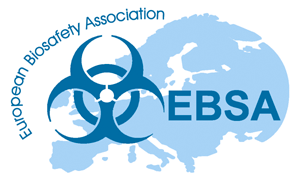All past events
Past external events
-
 13 March 2025
13 March 2025Large scale contained use - Polio certification in an eradication period
Read moreThe day will be dedicated to large scale contained use. This will be illustrated by sharing how the site has managed the Polio certification in an eradication period.
-
 13 March 2025
13 March 2025The 1st International Conference on Hungarian Biosafety
Read moreThe 1st International Conference on Hungarian Biosafety was created to provide a platform for national and international professionals to share their experiences, explore opportunities for collaboration, and discuss current biosafety challenges. As a pioneering event, our goal is to bring together Hungary’s biosafety community and showcase the country’s achievements and development opportunities.
-
 09 January 2025
09 January 2025ChABSA - Technical Seminar
Read moreImproving Stakeholder Communication & Public Perception of High-Containment Laboratories
-

-
 11 December 2024
11 December 2024Nordic Biosafety Network Meeting
Read morethe next Nordic Biosafety Network Meeting will take place 11 – 12 December 2024, lunch to lunch, in Stockholm. Theme of the meeting will be Biosecurity. Further information will be posted in the next coming months.
-
 06 December 2024
06 December 2024BSOH-BBP - Biosafety and Occupational Hygiene: Cross Perspectives on Biological Risks
AnderlechRead moreBiological agents can indeed be present in many sectors, not just in laboratories. Biosafety officers and occupational hygienists offer complementary perspectives on biological risks in the workplace.
What are their approaches? What tools do they use? What can we learn from each other?
Join us at the seminar on December 6, 2024, jointly organized by the BBP (Belgian Biosafety Professionals) and BSOH (Belgian Society of Occupational Hygiene), to learn more. This unique event will be an opportunity to explore how these two complementary approaches can be integrated to better prevent and manage risks related to biological agents in professional environments. -
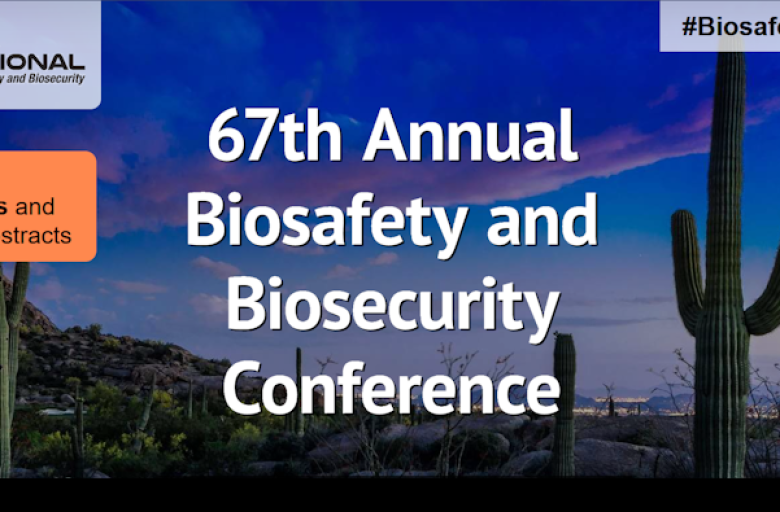 01 November 2024
01 November 2024ABSA - 67th Annual Biosafety and Biosecurity Conference
Read moreLocation: W Marriott Phoenix Desert Ridge, Phoenix, Arizona, US
- Intensive professional development courses to educate and inspire
- Three full days of state-of-the-art keynotes, papers, and panels highlighting best practices and hands-on skills crucial for today’s biosafety and biosecurity professionals
- In-person exhibits showcasing the latest in laboratory biosafety and biosecurity products and services
- Invaluable networking opportunities to share and learn from other biosafety and biosecurity professionals
-

-
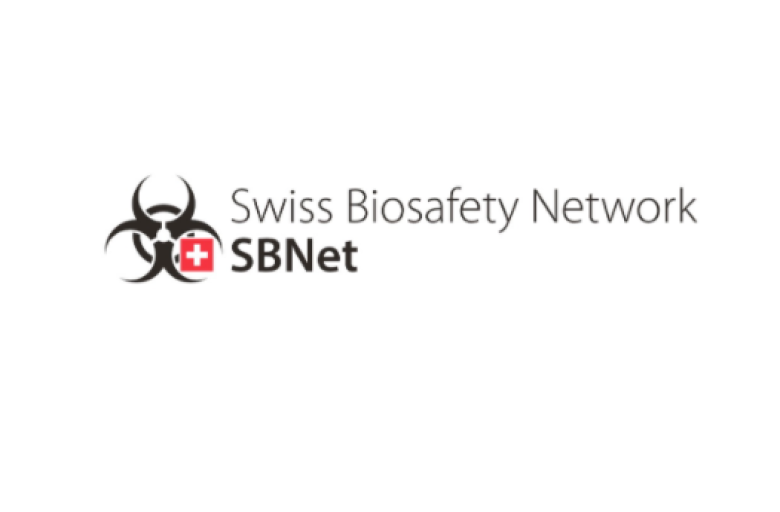 22 August 2024
22 August 202418th Applied Biosafety Meeting
Read moreThe 18th Applied Biosafety Meeting will take place over two days in Naters on August 22th/23th 2024.
-
 05 August 2024
05 August 2024ABSA BBTC® Fort Collins
Read moreA WEEK-LONG COURSE COVERING ANIMAL, GENERAL, AND PLANT BIOSAFETY AND BIOSECURITY
-
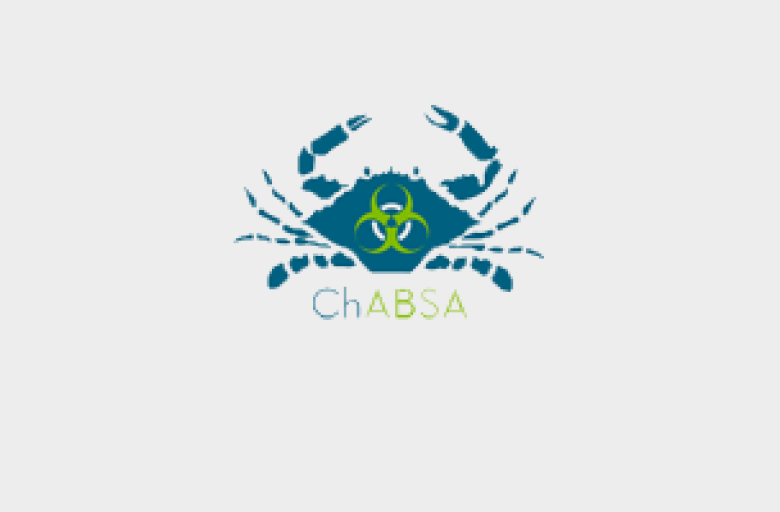 03 June 2024
03 June 2024ChABSA Annual Scientific Symposium and Workshop
Read moreChesapeake Area Biological Safety Association’s Scientific Symposium and Workshops at the Universities at Shady Grove in Rockville.
-
 16 May 2024
16 May 2024EBSA Conference 2024 and Preconference courses
AntwerpRead more2 days of EBSA pre conference courses on Tuesday 14 and Wednesday 15 May 2024
2 days of EBSA conference on Thursday 16 and Friday 17 May 2024.
-
 15 May 2024
15 May 2024Pre conference course I - Synthetic Biology; from Mainstream to Counterculture – Theory, Practice & Safety
AntwerpRead moreThe course will provide an overview of the field of Synthetic Biology, ranging from mainstream developments, and applications, to the alternative DIYBio movement. Case studies will be used to illustrate key mainstream advancements in whole cell modelling, live synthetic cells, synthetic DNA, and CRISPR genome editing. The impact of biohacking and the garage biology movement will also be discussed.
The course is designed as an introduction to the field of Synthetic Biology for non-experts, and will be delivered through a mix of lectures, supporting videos and participant discussion.
-
 15 May 2024
15 May 2024Pre conference course H - Key challenges to assessing training & competency
AntwerpRead moreThe course will provide the information to understand how adults learn and apply this to strategies for training and assessing competency. During the course, instructors will explain the key challenges to training adults, how to understand learning preferences and identify training needs of individual or groups. In addition to that, participants will learn how to define and assess competences and how to analyse the suitability of a trainer.
-
 15 May 2024
15 May 2024Pre conference course G - Safety equipment in contained laboratories: from the biosafety cabinet to individual protection, a practical approach
AntwerpRead moreAfter introducing the basic concepts about individual and collective equipment, the training will focus on biosafety cabinets (BSC) with particular attention to defining the protection range and differences of each type of BSC. Factors affecting the effectiveness of the BSC (misuse, location, etc.) will be highlighted through a technical demonstration. The first part of the course will also describe some ways to decontaminate the BSC work surface and HEPA filters. The second part of this course will cover personal protective equipment, focusing on the main properties of masks and gloves. Beside explaining the criteria to consider when selecting the appropriate PPE, the training will use practical approaches to raise awareness of poor practices that could compromise the effectiveness of the PPE.
-
 14 May 2024
14 May 2024Pre conference course C - Field Biosafety perspectives on One Health: From sampling multiple species to working in a Mobile Lab
AntwerpRead moreWhen outbreaks of high-risk viral pathogens strike, aspects of laboratory diagnostics or research are often performed directly in the field, at the epicenter of the epidemic. What then, are the required biosafety precautions to apply and how can they be implemented under challenging conditions?
-
 14 May 2024
14 May 2024Pre conference course A - Biological Risk Assessment – from paper to practice
AntwerpRead moreIt is known that human reliability and behaviour have a major impact on an individuals ability to work safely in a laboratory; and yet these same factors can be overlooked when assessing the risks in that laboratory. This pre-conference course will take your risk assessments to the next level through ensuring that human reliability is accounted for in risk assessments and introduce the concept of safety critical task analysis.
This pre-conference course is aimed at those individuals who are already risk assessors or understand the risk assessment process and provide attendees with the skills and knowledge to complete safety critical task analysis. It will not only consist of theory sessions on risk assessment and human reliability but also a visit to teaching laboratories at ITM and so taking the biological risk assessment process from paper to practice.
-
 14 May 2024
14 May 2024Pre conference course D - Mastering BSL-3 Laboratory Operations Throughout Its Lifecycle: Overcoming Challenges at Every Stage
AntwerpRead moreMastering BSL-3 Laboratory Operations Throughout Its Lifecycle: Overcoming Challenges at Every Stage.
-
 14 May 2024
14 May 2024Pre conference course F - How to contain insects: challenges to be overcome when working with invasive species, genetically modified insects and on pathogen-vector interactions
AntwerpRead moreAfter presenting the major risks encountered when working with insects that may carry pathogens or parasites, the course will address the characteristics of laboratories dedicated to their containment (ACL1-3). In addition to the structural elements of these specialized laboratories, the course will also describe best practices and appropriate protective equipment to use. The presentation will be completed by a visit to an ACL. Participants will also be involved in an interactive exercise (carried out in groups of 3-4 participants) of risk assessment for the proposed study cases.
-
 14 May 2024
14 May 2024Pre conference course E - Basics in Biosecurity
AntwerpRead moreBiosecurity impacts all biosafety professionals to varying degrees. As biosafety professionals we also have to give guidance and advise on biosecurity issues. How can one determine the potential for misuse within a laboratory setting? What biosecurity measures help preventing misuse? What elements need to be considered in a biosecurity concept?
It is a basic course for biosafety officers, biosafety professionals and other interested persons who also have biosecurity responsibilities. This course will provide participants with an overview about the main elements of a biosecurity program and concrete examples from practice covering the veterinary as well as the human side.
-
 14 May 2024
14 May 2024Pre conference course E - Basics in Biosecurity
AntwerpRead moreBiosecurity impacts all biosafety professionals to varying degrees. As biosafety professionals we also have to give guidance and advise on biosecurity issues. How can one determine the potential for misuse within a laboratory setting? What biosecurity measures help preventing misuse? What elements need to be considered in a biosecurity concept?
It is a basic course for biosafety officers, biosafety professionals and other interested persons who also have biosecurity responsibilities. This course will provide participants with an overview about the main elements of a biosecurity program and concrete examples from practice covering the veterinary as well as the human side.
-
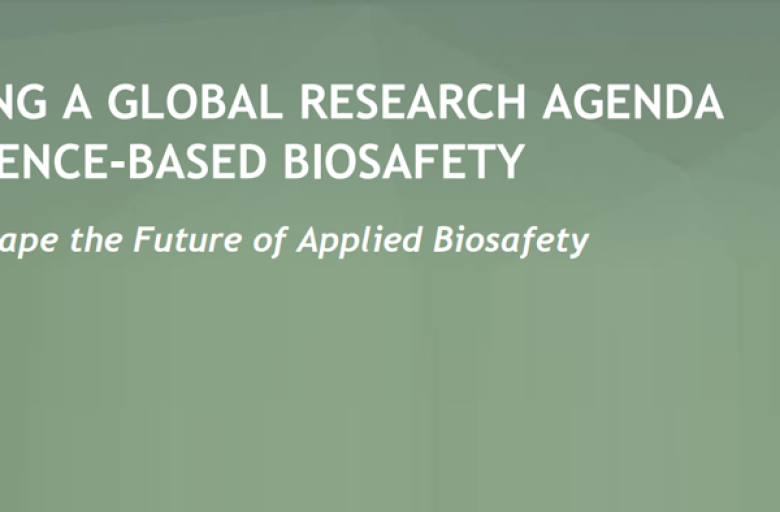 13 May 2024
13 May 2024Launching a Global Research Agenda for Evidence-Based Biosafety
Read moreEffective biorisk management is critical for mitigating biological threats in laboratories handling high consequence pathogens around the world, yet current practices are often based on outdated research, non-biological practices, or adhoc protocols that lack a proven scientific evidence base.
-
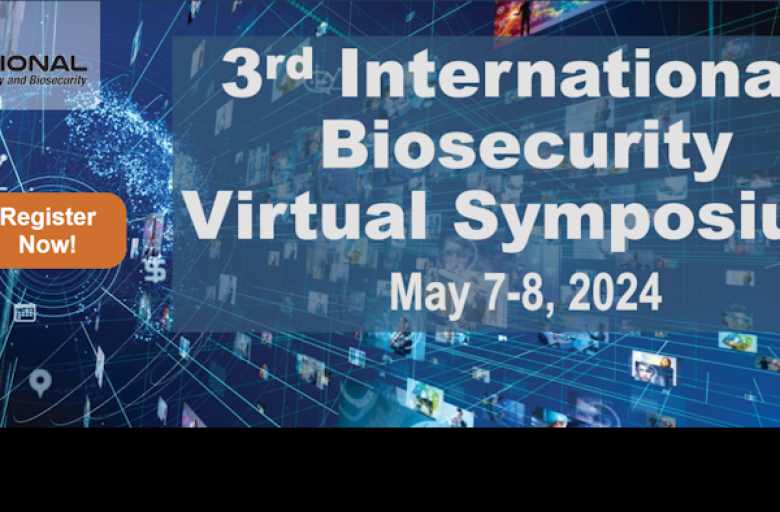 07 May 2024
07 May 20243rd International Biosecurity Virtual Symposium
Read morehe Symposium will bring together biosecurity professionals from a wide range of disciplines with varying expertise to share their experiences and knowledge on diverse biosecurity topics. The Symposium will offer attendees an opportunity to learn the latest in biosecurity and have thought-provoking conversations about real-world biosecurity issues, concerns, and scenarios.
-
 23 April 2024
23 April 2024The basics of risk assessment
Read moreThis online course is designed to provide attendees with a basic knowledge and requirements to complete risk assessments of laboratory activities.
-
 22 April 2024
22 April 2024BBP workshop - Biocide Product Regulation and biosafety: new insights & future perspectives
GentbruggeRead moreOne of the requirements of the 'contained use' legislation is the use of validated methods for inactivation of these GMOs and pathogens, the decontamination of work tables, etc. This is where the biocidal products regulation (BPR) comes in. However, for certain applications (e.g. inactivation of parasites, disinfection of water baths to heat up laboratory reagents), there are currently no authorised biocidal products available on the market.
-
 11 January 2024
11 January 2024EBSA Thursday - How ISO standards and technical specifications can support you in your daily life as BSO (and how you can support ISO with your technical knowledge as BSO)
Read moreISO35001:2019 Biorisk management for laboratories and related organizations is the well-known ISO management system standard supporting you in organizing biosafety and biosecurity in your organization and helping you to address all biorisk management issues that need to be addressed in a concerted manner. It builds on the continuous improvement plan- do-check-act-cycle to keep your biosrisk management system up to date and under control. ISO35001 was designed by biosafety experts like you form different countries around the globe, being a truly international standard, within the context of the International Standardization Organization, ISO, Technical Committee TC212, Clinical laboratory testing and in vitro diagnostic test systems
-
 19 October 2023
19 October 2023Demystifying ABS, Nagoya Protocol and the EU ABS Regulation – what you need to know when importing and using genetic resources.
Read moreA 2,5 hour online course (including a break and question session)
Instructor: Dominic Muyldermans
Description: The principles of Access and Benefit Sharing (ABS) were first recognised under the Convention on Biological Diversity, refined in the Nagoya Protocol and are further implemented in national ABS laws. In EU an additional compliance regulation applies.
-
 21 September 2023
21 September 2023EBSA Thursday - Joint EBSA – IVBWG Construction design workshop
Read moreEBSA members can join a part of the 20th Workshop of the International Veterinary Biosafety Working group online.
-
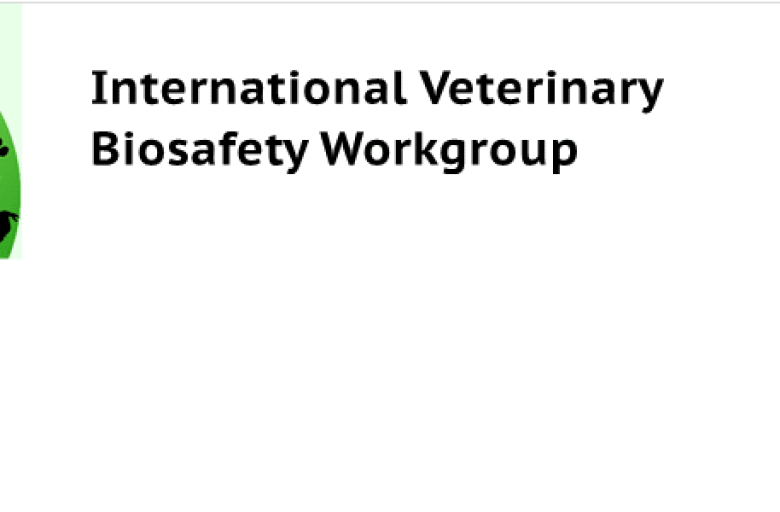
-
20 June 2023
Commissioning and decommissioning of contained use facilities
AntwerpRead moreDuring this workshop you will first get an introduction on the topic ‘commissioning and decommissioning’. In the afternoon there will be plenty of opportunity to share your experiences during our round table discussion. Focus will be on BSL2 facilities.
To end the day, you will get an insight into the ITM’s history and get a tour at this unique location.
-
 19 April 2023
19 April 2023Pre conference course F. Introduction to Human Factors in a Laboratory or scientific facility
AthensRead moreInstructors: Adam Stevenson and Wendy Shell
Aim: To be aware of human factors and how to take account of such in a laboratory or in vivo containment facility. -
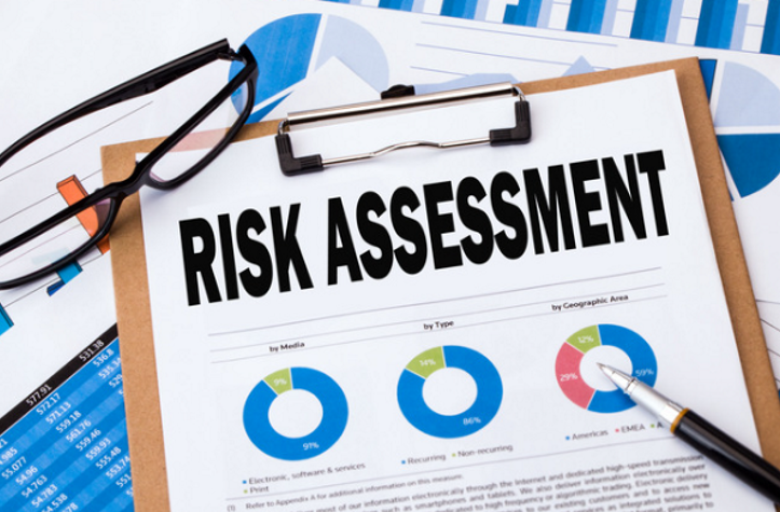 19 April 2023
19 April 2023Pre conference course C. Recombinant virus and viral vectors for research, gene therapy and vaccination: “GMO or not? Safe or not? Manageable or not?
AthensRead moreThere are a variety of investigational human and veterinary medicinal products consisting of or containing GMOs. GMOs for human medicines may include the following: human cells modified ex vivo; vaccines; recombinant virus-based vectors, including those containing genome editing nucleic acid sequences (which may also be delivered non-virally) and bacterial vectors.Medicinal products based onmRNA are on the rise. One need to define which constructs are still GMOs or not, which constructs are less or more hazardous than the wildtype virus, they are derived from, and which might serve as agent to harm others. How are people and the environment protected when they are widely used, also outside controlled laboratory settings. There is guidance and regulation. Which ones to apply is the one hundred Euroquestions.
-
 19 April 2023
19 April 2023Pre conference course B. An introduction course on biosafety (for a beginner level, WHO the LBM)
AthensRead moreThe role of a biosafety professional (BSP) within an institution is a challenging position. In addition, a BSP very often plays the interface between different activities within a facility including animal handling, engineering, maintenance and cleaning.
-
 18 April 2023
18 April 2023EBSA Conference 2023 and Preconference courses
AthensRead more2 days of EBSA pre conference courses on Tuesday 18 and Wednesday 19 April 2023
2 days of EBSA conference on Thursday 20 and Friday 21 April 2023.
Check out
-
 18 April 2023
18 April 2023Pre conference course G. Operations, Maintenance and Management of Containment Level 2/3 Facilities
AthensRead more- Essential elements of and metholodolgies to perform risk assessment
- Assessing the risk of biological materials (microorganisms, cells, tissues)
- Evaluating the risk of procedures/activities
- Defining measures to control/minimize the risk (containment, GMT, PPE, training)
-
 18 April 2023
18 April 2023Pre conference course H. Tips for the successful evidence-based decontamination of contained use laboratories using liquid and gaseous disinfectants
AthensRead moreThe application of appropriate decontamination methods is the key element in reducing surface contamination in the laboratory to prevent laboratory-acquired infections and cross contamination in the laboratory.
-
 18 April 2023
18 April 2023Pre conference course E. The world of infection - working with infected animal models
AthensRead moreWorking with an animal model of infection means introducing an additional risk into the infection chain.
Not only the animals need to be handled appropriately to reduce a potential risk to the scientist, the equipment also plays a major role in minimising risk during individual infection experiments.
Infection models with obligate pathogenic human germs must be treated carefully and calmly. The 3Rs of laboratory animal science are not only a guarantee for ethically sound experiments, but also serve the safety of the researchers.
This course is rated as advanced. Therefore basic knowledge of Biosafety is a prerequisite as well as initial knowledge in working with animals.
-
 18 April 2023
18 April 2023Pre conference course D. The gift of failure – learning from accidents, incidents and near-misses
AthensRead moreSadly, accidents will always happen. They can be prevented, but only if we take care to understand how and why they happen. Their impact can be reduced, but only if we take time to prepare. Gaining that understanding and having a plan are key safety processes.
-
 18 April 2023
18 April 2023Pre conference course A. The holy grail in biosafety: risk assessment
AthensRead moreEven though national and international regulations provide a framework on how to work safely with a certain pathogen or hazard, specific risk assessments are indispensable to identify appropriate safety measures to ensure that the risk associated with working with biological agents is on an acceptable level. This course will set out the principles of a risk assessment process, addressing the definition of key steps, risk evaluation and identification of high-risk laboratory procedures or selection of risk control measures.
-
 16 March 2023
16 March 2023Recent developments in plant genetic engineering technology
Read moreThe online course will provide an up-to-date overview of the use of modern targeted genetic engineering technology in plants, focusing on the CRISPR/Cas system. It provides an overview of the different methods used, the types of genetic and epigenetic modifications that can be achieved, their applications and consequences. The consequences will also be discussed in the GMO regulatory context and with regards to potential risks and uncertainties.
-
 08 November 2022
08 November 2022Managing infectious aerosols in a laboratory setting: Lessons learned from COVID-19
Read moreThis online course will describe how aerosols are formed and infect people.
The types of equipment to generate and measure aerosols will be described as will a review of information used to inform risk assessments for the generation and spread of aerosols.
-
 06 October 2022
06 October 2022BBP-webinar: A deep dive into access benefit sharing and dual use
Read moreDuring this morning online webinar both fundamentals as implementation of access benefit sharing (ABS) and dual use regulation will be discussed by our speakers:
-
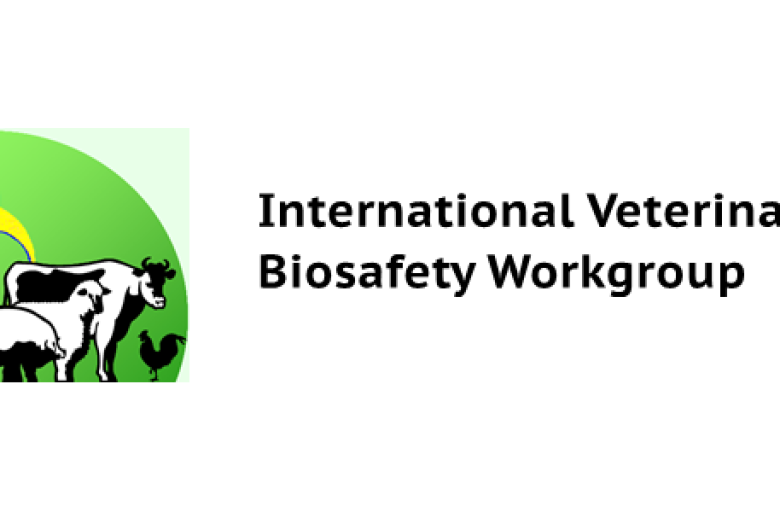 21 September 2022
21 September 2022Webinar International Veterinary Biosafety Working Group
Read moreWe are delighted to announce a webinar organized by the International Veterinary Biosafety Working Group on various topics relevant for those working in Veterinary facilities:
21st September (2h): 12h00 - 13h45 CEST
22st September (2h): 22h00 - 23h35 CEST
-
 20 September 2022
20 September 2022ChABSA Technical Seminar “Managing outbreaks from Monkeypox to COVID to Polio”
Read moreDr. Michael Sauri will provide an update on emerging diseases and will discuss the differences between of managing the COVID pandemic and the global outbreak of Monkeypox and current potential and real outbreaks. This talk will address myths/urban legends around the current state of disease transmission worldwide and focus on best practices for management of disease transmission.
-
 20 September 2022
20 September 2022Chemical disinfectants used in laboratories: efficacy spectrum and regulation of their use
Read moreThis online course is aimed at offering recommendations regarding the choice of the disinfectant as a function of the material to be treated. Limits of the use of disinfectants will be described, with emphasis on the development of resistance and thus the need to be (re)validated regularly. The other part of the course will focus on the biocide legislation and the regulation of biocides.
-
 25 August 2022
25 August 202216th Applied Biosafety Meeting
Read moreThe 16th Applied Biosafety Meeting will take place over two days in Geneva on August 25th/26th 2022.
-
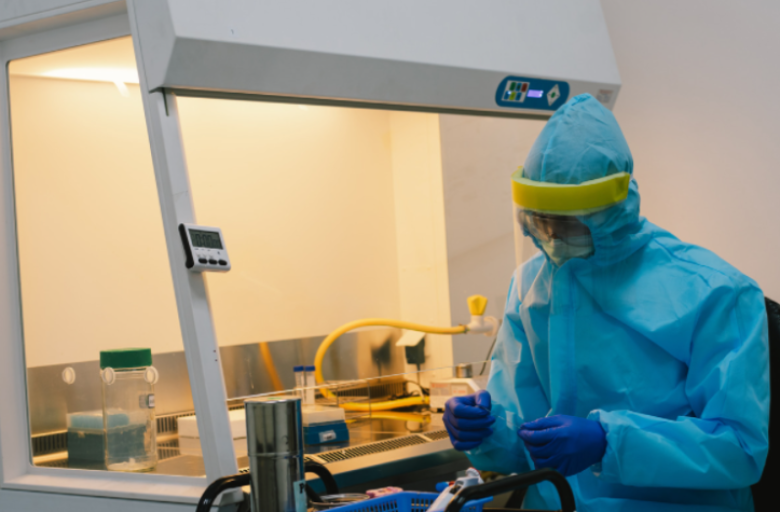 18 May 2022
18 May 2022Pre conference course C. Working Safely in the Biosafety Cabinet (½ day)
GhentRead moreThe biosafety cabinet (class II) is the most important and most widely used primary barrier in the microbiological and biomedical laboratory (BSL-2, BSL-3, and BSL-4).
Check all details here -
 18 May 2022
18 May 2022Pre conference course I. Moving on without leaving a trace - decommissioning in practice (1 day)
Read moreCheck all details here
-
 18 May 2022
18 May 2022Pre conference course E. How to convince and influence for biosafety and security (1 day)
GentbruggeRead moreTo shape the attitude of non-experts towards the risks of infectious disease, it is not sufficient to just ‘tell the facts’. The way the information is presented and the source credibility of the organisation are crucially importan. Unfortunately, in many cases the importance of these factors is underestimated. What can (governmental) organisations do to effectively shape the perception?
Check all details here -
 17 May 2022
17 May 2022Pre conference course G. (Bio)containment of GM plants - from Green Houses to Field Trials (1 ½ day, afternoon 17.05, 18.05)
GentbruggeRead moreCheck all details here
-
 17 May 2022
17 May 2022EBSA Conference 2022 and Preconference courses
Gentbrugge, Ghent and GentRead more2 days of EBSA pre conference courses on Tuesday 17 and Wednesday 18 Mai 2022
2 days of EBSA conference on Thursday 19 and Friday 20 May 2022.
Registrations are open
More info and opening of registrations will follow soon! -
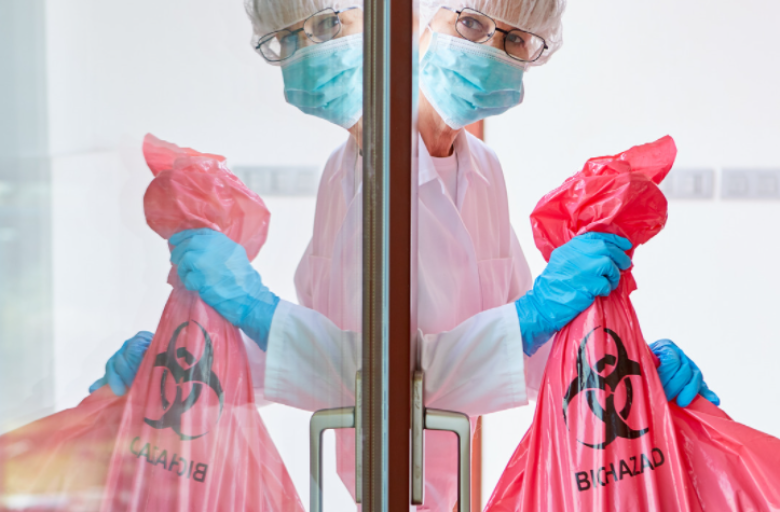 17 May 2022
17 May 2022Pre conference course H. Biological Waste handling (validation, technical aspects) (2 days)
GentbruggeRead moreWaste management is a topic of interest to all facilities who manage biological agents, no matter how large or small, private or public; but mostly it is not seen as a very exciting or sexy topic.
Check out the details for this course -
 17 May 2022
17 May 2022Pre conference course B. Fundamentals for (re)design of a safe and compliant BSL3 facility (2 day)
GentbruggeRead moreThe course will include a site visit.
-
 17 May 2022
17 May 2022Pre conference course A. Auditing: a comprehensive and practical introduction
GentRead moreThis two day practical course provides a comprehensive and sound practical introduction to auditing. The course takes participants through the principles, recognized best practices and essential techniques of (HSE / biosafety) auditing. It provides them with guidance on planning and performing of an audit in line with international standards.
-
 17 May 2022
17 May 2022Pre conference course F. Biorisk assessment and management: basic principles and how to get it right (1 day)
GentbruggeRead moreThis course is aimed at defining and implementing the principles of risk assessment and risk management in different situations. Some situations are complex and present significant risks which need to be managed and demonstrated as effective. Suitable for early career and those wishing to improve risk assessment skills and knowledge.
Check all details here -
 17 May 2022
17 May 2022Pre conference course D. Personal protection equipment (PPE) – making optimal choices
GentbruggeRead moreThis course will both give a theoretical overview of the use of personal protective equipment (PPE) in BSL2 and BSL3 laboratories and alsothe practical experience with different sorts of PPE.
-
12 May 2022
Standards and Guidelines for Biosafety Laboratories
Read moreLive webinsar
by German LabConCert
-
27 April 2022
Technical requirements for High-level Isolation Units (HLIUs)
Read moreOnline seminar Technical Requirements for High-level Isolation Units
by German LabConCert
-
 17 February 2022
17 February 2022Workshop Movement (BBP members only)
Read moreDuring this workshop the updated BBP Movement Guidance document will be presented:
-
 16 December 2021
16 December 2021EBSA Thursday - European Plant Health Regulatory framework: Principles, Implementation and Obstacles
Read moreThis session will focus on the European Plant Health Regulatory framework which entered into force as of Dec 14, 2019. It modernized the plant health regime with the aim to protect the Union's territory and its plants, ensure safe trade, and mitigate the impacts of climate change on the health of our crops and forests. We will discuss implementation of the new rules in different EU member states, their impact on handling and importing plants and plant pathogens, as well as provide discussion opportunity on obstacles confronted by the EBSA members.
-
 02 December 2021
02 December 2021Blended learning
Read moreInstructors: Henrik Bregnhoj & Lawrence Dickson
This course will give you an introductory experience with application of current digital educational technologies like production and use of power point-based videos, planning and execution of webinars, and the use of an Learning Management System -
 25 November 2021
25 November 2021BBP online webinar 'Biosafety out of the ordinary’
Read moreDuring this morning online webinar different “out of the ordinary” biosafety topics will be discussed, including working with Algae (by Pascale Van Rooij, Perseus), the arthropod containment level (by Marco Brustolin, ITM Antwerp) and bacteriophages (by Katia Pauwels, SBB/Sciensano).
-
 18 November 2021
18 November 2021Personal Protective Equipment
Read moreInstructors: Ulrika Allard Bengtsson and Per Staugaard
This course will both give a theoretical overview of the use of personal protective equipment (PPE) in BSL2 and BSL3 laboratories ... -
16 November 2021
ChABSA webinar: Evolving Design Philosophies for Containment Laboratories
Read moreEvolution of design is ordinarily a slow process of change from one form or level to a better or higher level. We are living in a unique period of time and are challenged to match containment laboratory capacity with the needs and wants of the industry. In this presentation, Mr. Traum describes how a team of talents must work together to build an operational and sustainable laboratory. Mr. Traum gave this presentation at the 2021 Future Laboratory Innovation and Development Summit Forum in Shanghai, China.
-
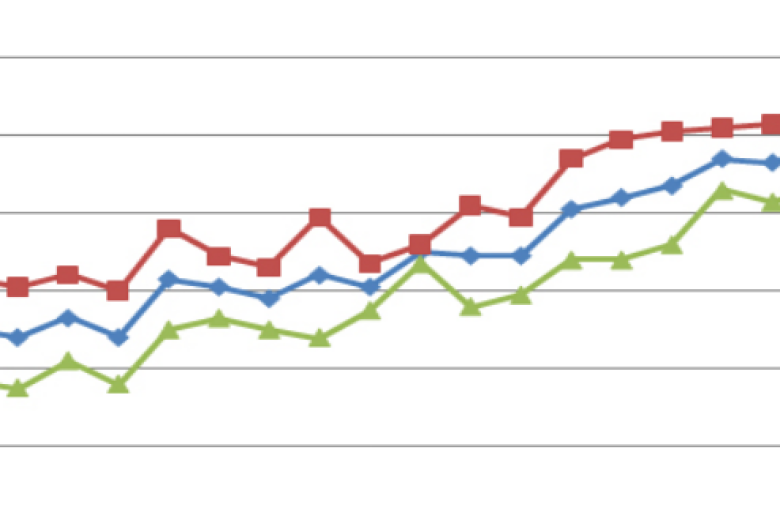 16 November 2021
16 November 2021Epidemiology - what is it and what do these numbers really mean?
Read moreNew date to be announced soon due to the instructor being out sick.
Instructors: Andreea Dobrescu
1. Introduction to Epidemiology
2. Summarizing Data
3. Measures of Risk ... -
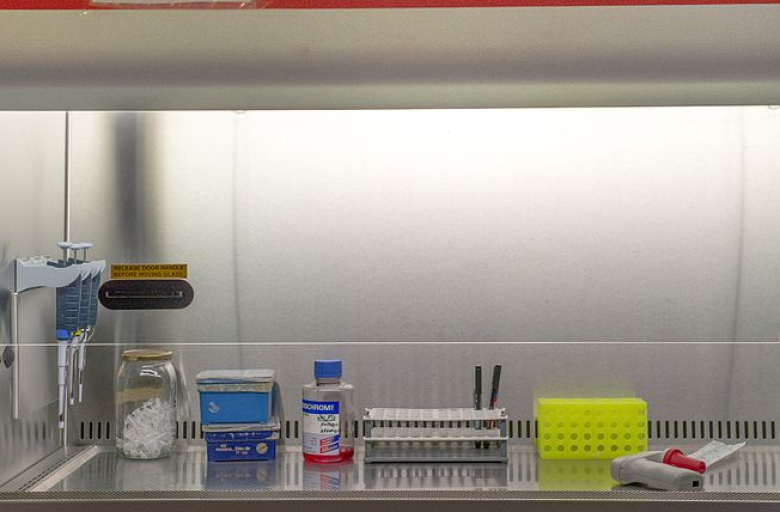 14 October 2021
14 October 2021Biosafety Culture
Read moreInstructors: Jan Piet Tijssen & Cathy Bakker
This course intends to inspire you. To convince you that safety not only pays (for you and the company), but also is fun and moreover a serious profession. -
 30 September 2021
30 September 2021Bloodborne pathogens in the lab: minimize exposure & prevent infection
Read moreInstructor: Dana Brehar-Cioflec
Moderator: Heather Sheeley
This course will provide an overview on the main aspects of working safely with blood and blood containing materials in various types of laboratories (diagnostic, research, etc.).Prevention of laboratory infections involving bloodborne pathogens will be addressed with focus on general and specific prevention measures, materials and equipment, as well as health monitoring.
Brief exercises will be included to highlight the discussed aspects.
International and European regulations and recommendations will be highlighted and relevant references and links will be provided.
-
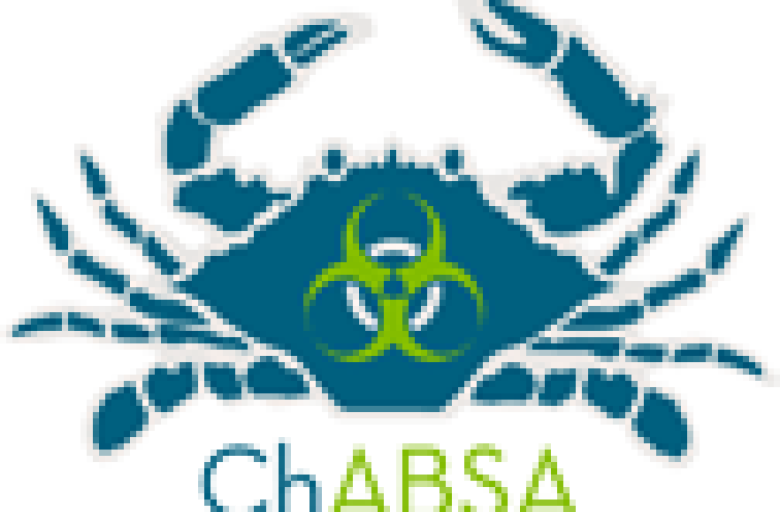 21 September 2021
21 September 2021Online technical seminar: Debunking Myths about Disinfectants
Read moreIn this session, Mr. Donato will highlight popular comments about the use of disinfectants of what works, what is an acceptable method of application, and regulatory requirements that were common during the peak of the pandemic. During this technical seminar Mr. Donato will explain what was a myth and what actually was a fact.
-
 16 September 2021
16 September 2021EBSA Thursday - BioEthics & Dual Use in relation to BioRisk
Read moreGeneral overview on BioEthics in relation to Biorisks
by Dr. Takis Vidalis (Senior Scientist - Legal Advisor at the Hellenic National Bioethics Commission, Greece)Dual Use
by Dr. Rik Bleijs and MSc. Iris Vennis (National Institute for Public Health and the Environment, The Netherlands).Moderators Dr. Mieke Jansen & Dr. Marcel van Bergen
-
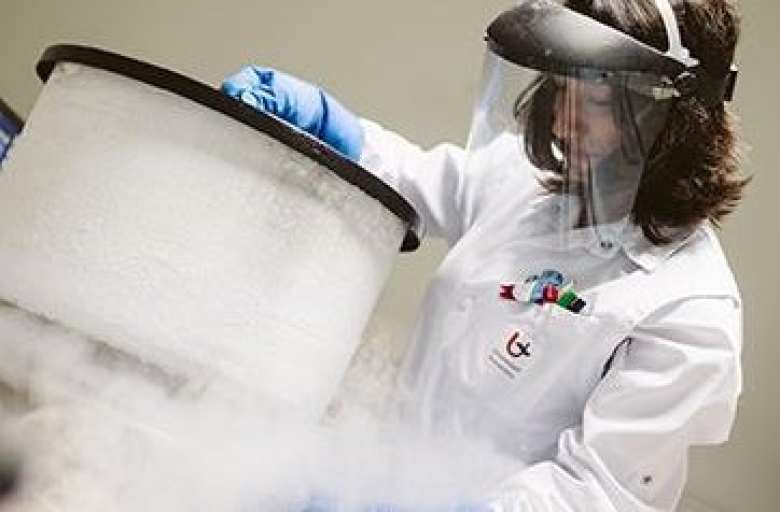 13 September 2021
13 September 2021International course Principles of Biosafety
Read moreThis intensive course, organised by the University of Antwerp and the Institute of Tropical Medicine of Antwerp, in collaboration with Ghent University, University of Namur, Free University of Brussels, Sciensano and Perseus, provides a comprehensive review of all essential elements of assessing and managing biological risks. Theoretical aspects will be combined with diverse topics focused on daily practice.
-
 02 September 2021
02 September 2021BBP online webinar 'BBP behind the scenes: Task Forces and working groups’
Read moreThe Sars-CoV2 pandemic made it impossible to organize physical meetings, however BBP never stopped working.
During this morning webinar we want to give BBP and EBSA members an opportunity to get a “view behind the scenes” of our organization.
-

-
 19 August 2021
19 August 2021Disinfection and Sterilization
Read moreThis course is an introduction to the subject. It describes the most commonly used chemical and physical methods, with an emphasis on the important criteria to be assessed in choosing an approach and verifying its effectiveness.
-
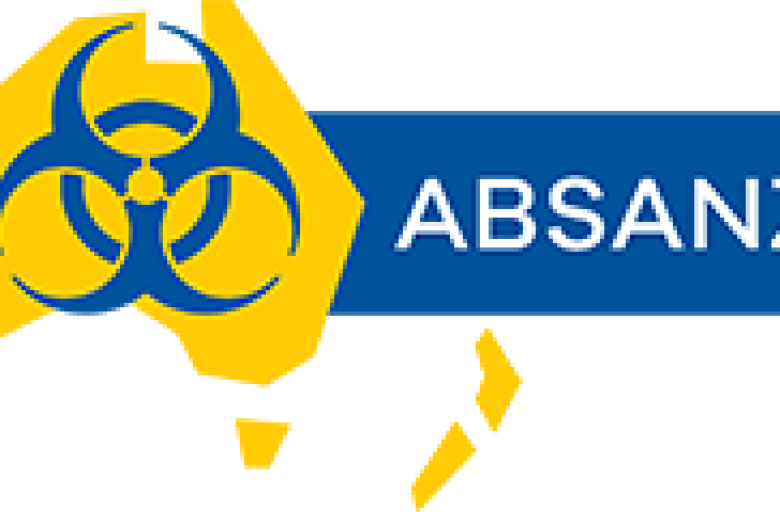 16 August 2021
16 August 2021What is epidemiology and its crucial role in past, present and future pandemics
Read moreAs head of Deakin Epidemiology, a research unit within the Determinants of Health group in the Institute for Health Transformation, Professor Catherine Bennett is a respected authority on the determinants of disease across populations, and of ways to reduce the impact of these diseases on the health of the community.
-
 20 July 2021
20 July 2021Preventing COVID-19 infection from airborne transmission
Read moreSpeakers: Kate Cole, Certified Occupational Hygienist (COH) and President-Elect of the AIOH and Dr Julia Norris, Certified Occupational Hygienist (COH), FRACGP, and Past-President of the AIOH.
-
 01 July 2021
01 July 2021Auditing for maximum impact – an introduction
Read moreInstructor: Julia Cotton
Biosafety professionals must be able to carry out biosafety and biosecurity audits and inspections, identify failures, non-conformities, corrective actions and areas for improvement and monitor progress. -
 28 June 2021
28 June 2021International Symposium on Sustainable Animal Production and Health
Read moreCurrent status and way forward
Organiser: Joint FAO/IAEA CentreFree online symposium. All information and registration are available online.
Check out the program.For more information, please contact Ms Julie Zellinger at Conference.Contact-Point@iaea.org.
-

-
 17 June 2021
17 June 2021EBSA Thursday
Read moreNew Genomic Techniques – safely managing innovation in times of legal uncertainty
The third of 5 online, member only, meetings in 2021
In 2008 the European GMO competent authorities established a working group to determine if organisms modified by new techniques would be subject of the GMO legislation. Ten years later, after a bumpy procedural road, the European Court of Justice indicated that organisms obtained by mutagenesis are GMOs and that only those obtained by conventional mutagenesis techniques are exempted from the GMO legislation. This legal interpretation triggered a fierce debate with all parties agreeing that the definitions included the 90’ies GMO legislation were outdated. -
09 June 2021
2021 ChABSA VIRTUAL SCIENTIFIC SYMPOSIUM
Read moreThe ongoing pandemic has highlighted the need for the rapid exchange of information on biosafety and biosecurity even while restricting many of the opportunities our community typically relies on to do so.
-
 03 June 2021
03 June 2021Introduction to vaccinology
Read moreInstructor: Gideon Kersten
The course gives insight in the exciting field of vaccinology. The relevance of vaccines does not need emphasis in these days. But how do they work? ...
-
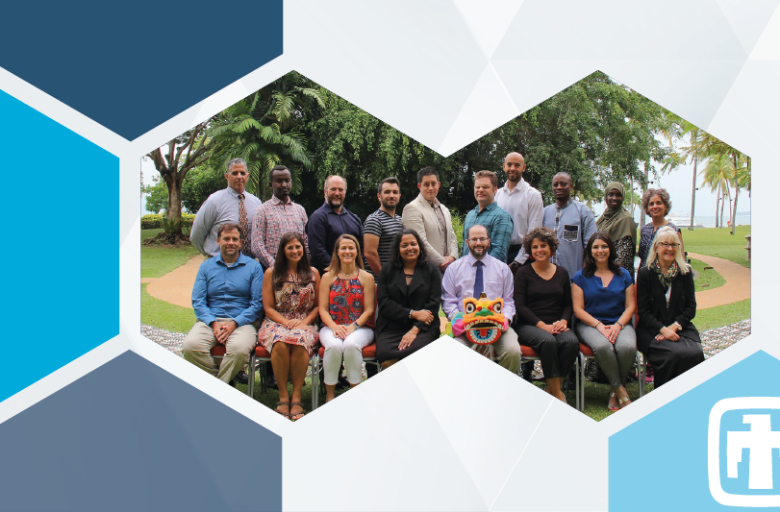 21 May 2021
21 May 2021International Biorisk Management Collaboration Symposium
Read moreMay 21st, 2021 11:00-13:30 ET | 16:00-18:30 GMT
CANCELLED
Join us for a free symposium on Zoom to highlightbiorisk management implementation-related projectsaccomplished by teams of international collaboratorsas part of Sandia National Laboratories’ InternationalTwinning Project Round IX teams. -
 20 May 2021
20 May 2021Gene Drives: Technologies, applications & biosafety challenges
Read moreInstructors Fred Wassenaar & Patrick Rüdelsheim
Gene drives allow for a trait to be transmitted to subsequent generations in a ratio that deviates from the laws of Mendelian inheritance. Active in sexually-reproducing species, they are powerful tools to “drive” ... read all info and register here
-
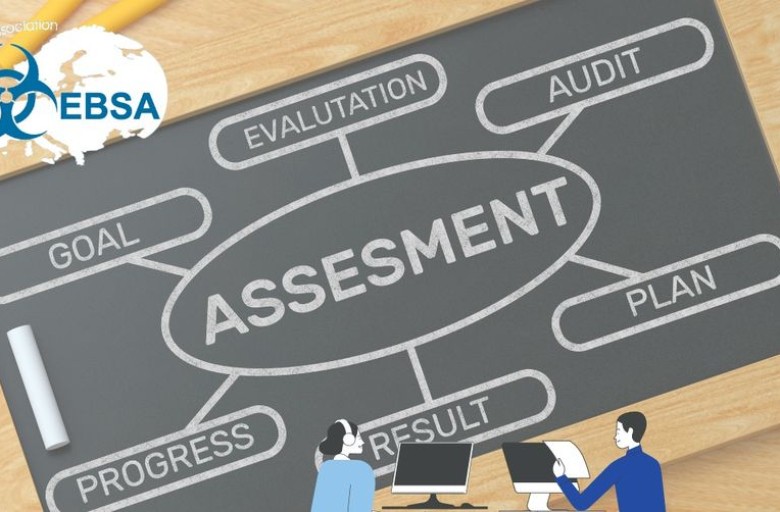 11 May 2021
11 May 2021ISO 35001 – An introduction into the biorisk management standard
Read moreRE-RUN UPON POPULAR DEMAND (confirmation as soon as we have 25 participants)
The ISO 35001 standard on “Biorisk management for laboratories and other related organisations - is the first internationally recognized management standard to specifically address hazards associated with laboratories where biological materials are handled at all containment levels.
-
 30 April 2021
30 April 2021BBP - BSOH online event: Biological agents: where the biosafety coordinator and the occupational hygienst meet
Read moreIn the footsteps of our previous joint meeting in 2017, BSOH and BBP again joined forces to organize an event. This year, we will focus on where and how the occupational hygienist and the biosafety coordinator can collaborate. By means of practical cases, the roles of both functions and the opportunities for collaboration will be highlighted.
-
 29 April 2021
29 April 2021EBSA Thursday "Risk assessments – One size does not fit all"
Read moreThe second of 5 online, member only, meetings in 2021
with Ursula Jenal and Toon De Kesel
Every single document on biorisk management stresses the importance of a robust risk assessment. The fourth edition of the WHO Laboratory Biosafety Manual promotes the thorough, evidence-based and transparent assessment of the risks. ISO 35001 stipulates that an organization shall ensure that suitable methodologies for assessing and prioritizing biorisks are identified, implemented, maintained, and documented. -
28 April 2021
Microbiological Risk Assessment: Should we use the Biosafety Cabinet?
Read moreOrganised by
Dr. Felix Gmünder (Basler & Hofmann) and Fabio Blaha (German LabConCert GmbH)
-
 22 April 2021
22 April 2021Désinfection - Décontamination - Stérilisation du matériel biologique: Notions de bases (French)
Read moreCourse completely in French
Cours entièrement en françaisCe cours est une introduction au sujet. Il décrit les approches les plus utilisées, en mettant l’accent sur les critères important à évaluer pour le choix d’une approche et la vérification de son efficacité.
-
 21 April 2021
21 April 2021Biological Risk Assessment – How safe are we in our labs if we apply the risk based approach according to the new WHO Biosafety Manual?
Read moreRE-RUN UPON POPULAR DEMAND (confirmation as soon as we have 25 participants)
In this webinar these and other questions will be addressed by using the risk based approach of the new WHO biosafety manual.
-
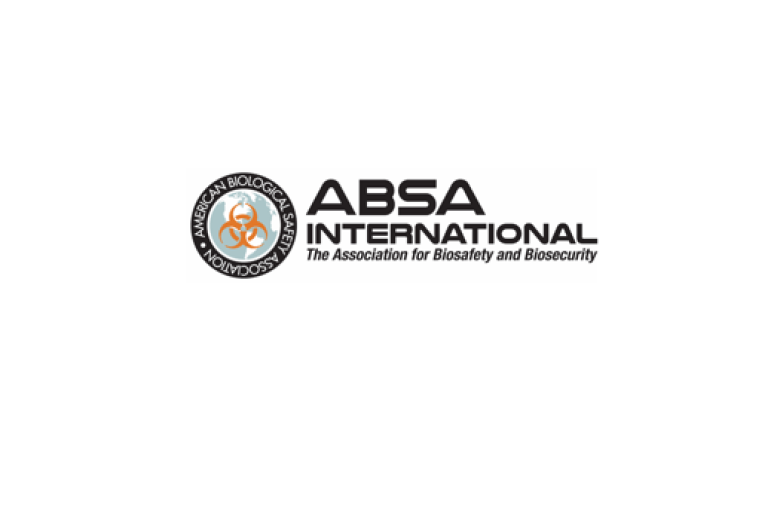 21 April 2021
21 April 2021ABSA International’s 1st Biosecurity Virtual Symposium
Read moreThe Symposium will consist of papers, presentations, keynotes, posters, valuable networking opportunities, and exhibits.
-
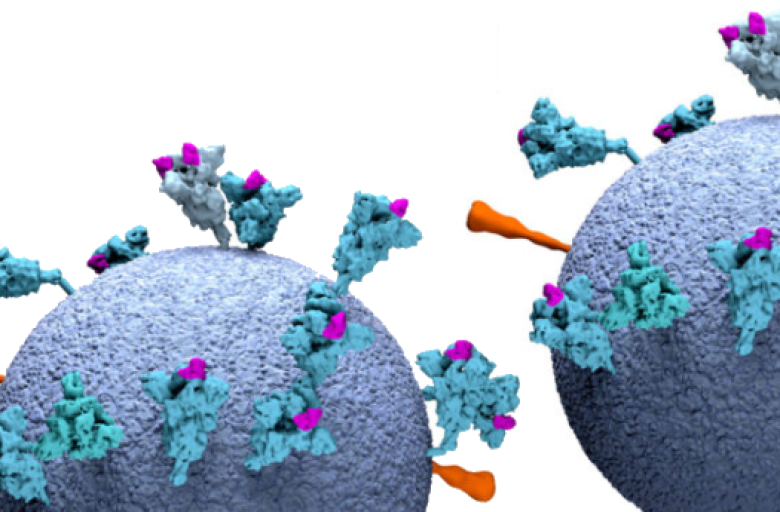 25 March 2021
25 March 2021BBP webinar: (Bio)Safety aspects of DNA and RNA vaccines
Read moreDigital symosium, free for all BBP and EBSA members.
-
 04 March 2021
04 March 2021EBSA Thursday - WHO LBM4 – Biorisk management beyond risk groups and biosafety levels
Read moreThe WHO Laboratory Biosafety Manual (LBM) serves as a de facto global standard that presents best practices and sets trends in biosafety. The recent publication of the fourth edition expands the thorough, evidence-based and transparent assessment of the risks, allowing safety measures to be balanced with the actual risk of working with biological agents on a case-by-case basis.
A challenging shift from routines based on levels? An opportunity to allow optimizing risk management, in particular in less resourced envrionments? Join us and discuss with two of the LBM4 contributors, active EBSA members, providing their insights on the (r)evolution this version marks and how biosafety professionals can use it in their daily practice.
-
 18 February 2021
18 February 2021Biosafety and the COVID-19 Vaccines
Read moreFebruary 18, 2021 12:00 - 1:30 pm (CST)
Biosafety and the COVID-19 Vaccines is intended to provide an overview of the clinical trial development and biosafety considerations of the currently approved COVID-19 vaccines.
-
30 November 2020
INTERNATIONAL CONFERENCE ON BIOSAFETY AND LABORATORY
Read moreONLINE CONFERENCE
With the current situation in mind, we provide the possibility to participate online. For further information, please see the attached flyer.
-
-
19 November 2020
Biosecurity Webinar: Biosecurity in het onderzoek (only available in Dutch)
Read moreonline webinar by RIVM, The Netherlands
-
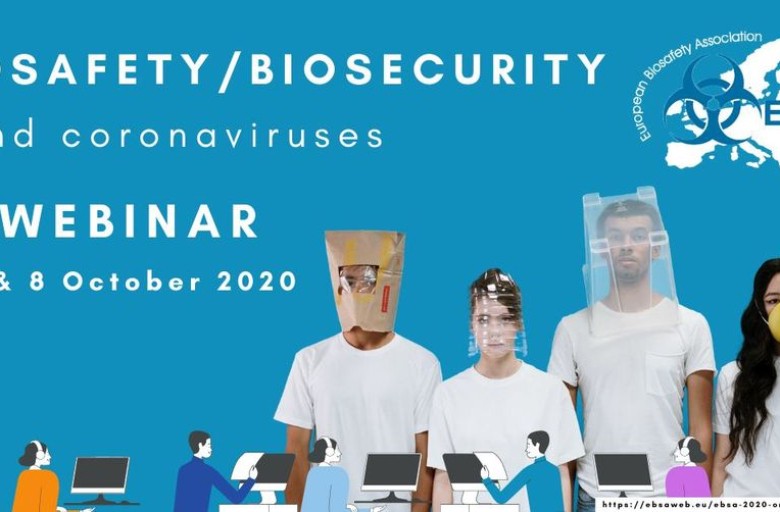
-
-
-
